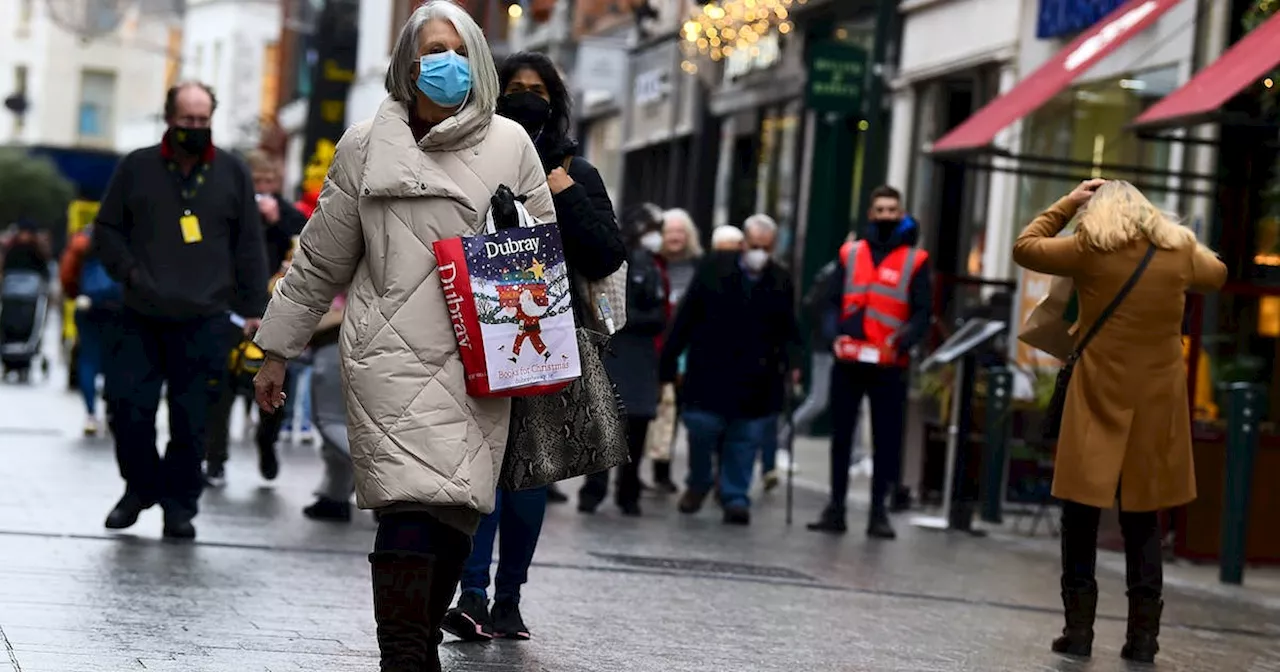Consumer spending has been driven by the wealthiest consumers. It will take more than just inflation to slow these folks down.
But exactly who is doing that spending is changing. And opening up a new question about the next phase of this economic expansion.
The highest 20% of earners have accounted for 45% of consumption since 2020, about 6 percentage points more than typically seen in a given year since 2004. On this front, Morgan Stanley's team has some ideas. As readers are well aware, stock and home prices have risen sharply since 2019, though Morgan Stanley expects the latter to stall out next year.
"And indeed our analysts who cover restaurants and luxury brands both point to an aspirational consumer that has begun pull-back spending on fine dining and luxury shopping. As wealthy households approach satiety as well, aggregate consumer spending will shift into a lower gear. For a sharper step-down, broad-based white-collar layoffs and significant loss of wealth, particularly in housing, are key.
Canada Latest News, Canada Headlines
Similar News:You can also read news stories similar to this one that we have collected from other news sources.
 Drugmakers Are Set to Pay 23andMe Millions to Access Consumer DNAGSK will pay the DNA testing company $20 million for non-exclusive access to genetic data.
Drugmakers Are Set to Pay 23andMe Millions to Access Consumer DNAGSK will pay the DNA testing company $20 million for non-exclusive access to genetic data.
Read more »
 NerdWallet CEO talks NerdUp card bolstering consumer creditAmericans are becoming increasingly concerned about their credit scores, with nearly a quarter of U.S. consumers citing bad credit scores as detracting from ...
NerdWallet CEO talks NerdUp card bolstering consumer creditAmericans are becoming increasingly concerned about their credit scores, with nearly a quarter of U.S. consumers citing bad credit scores as detracting from ...
Read more »
 From Amazon to McDonald's, strong earnings show U.S. consumer resilienceExplore stories from Atlantic Canada.
From Amazon to McDonald's, strong earnings show U.S. consumer resilienceExplore stories from Atlantic Canada.
Read more »
 From Amazon to McDonald's, strong earnings show U.S. consumer resilienceIn a strong quarter for earnings, the big consumer stocks have shone even brighter, thanks to results from McDonald's, Chipotle Mexican Grill and others that...
From Amazon to McDonald's, strong earnings show U.S. consumer resilienceIn a strong quarter for earnings, the big consumer stocks have shone even brighter, thanks to results from McDonald's, Chipotle Mexican Grill and others that...
Read more »
 Consumer Spending Surges, but Economists Warn of Uncertain FutureEconomists caution that consumer spending, which has been robust in recent months, may not continue at the same pace due to depleted savings and increased reliance on credit cards. The post-pandemic economy remains unpredictable, and while a recession is not currently expected, the future is uncertain. Despite this, the government reported a 4.9% annual growth rate in the economy in the July-September quarter, driven by increased spending on discretionary items such as used cars and restaurant meals.
Consumer Spending Surges, but Economists Warn of Uncertain FutureEconomists caution that consumer spending, which has been robust in recent months, may not continue at the same pace due to depleted savings and increased reliance on credit cards. The post-pandemic economy remains unpredictable, and while a recession is not currently expected, the future is uncertain. Despite this, the government reported a 4.9% annual growth rate in the economy in the July-September quarter, driven by increased spending on discretionary items such as used cars and restaurant meals.
Read more »
 Irish Consumer Sentiment Improves in OctoberIrish consumer sentiment improved in October as tax cuts and increased spending in the annual state budget helped ease consumer gloom, a survey showed.
Irish Consumer Sentiment Improves in OctoberIrish consumer sentiment improved in October as tax cuts and increased spending in the annual state budget helped ease consumer gloom, a survey showed.
Read more »
